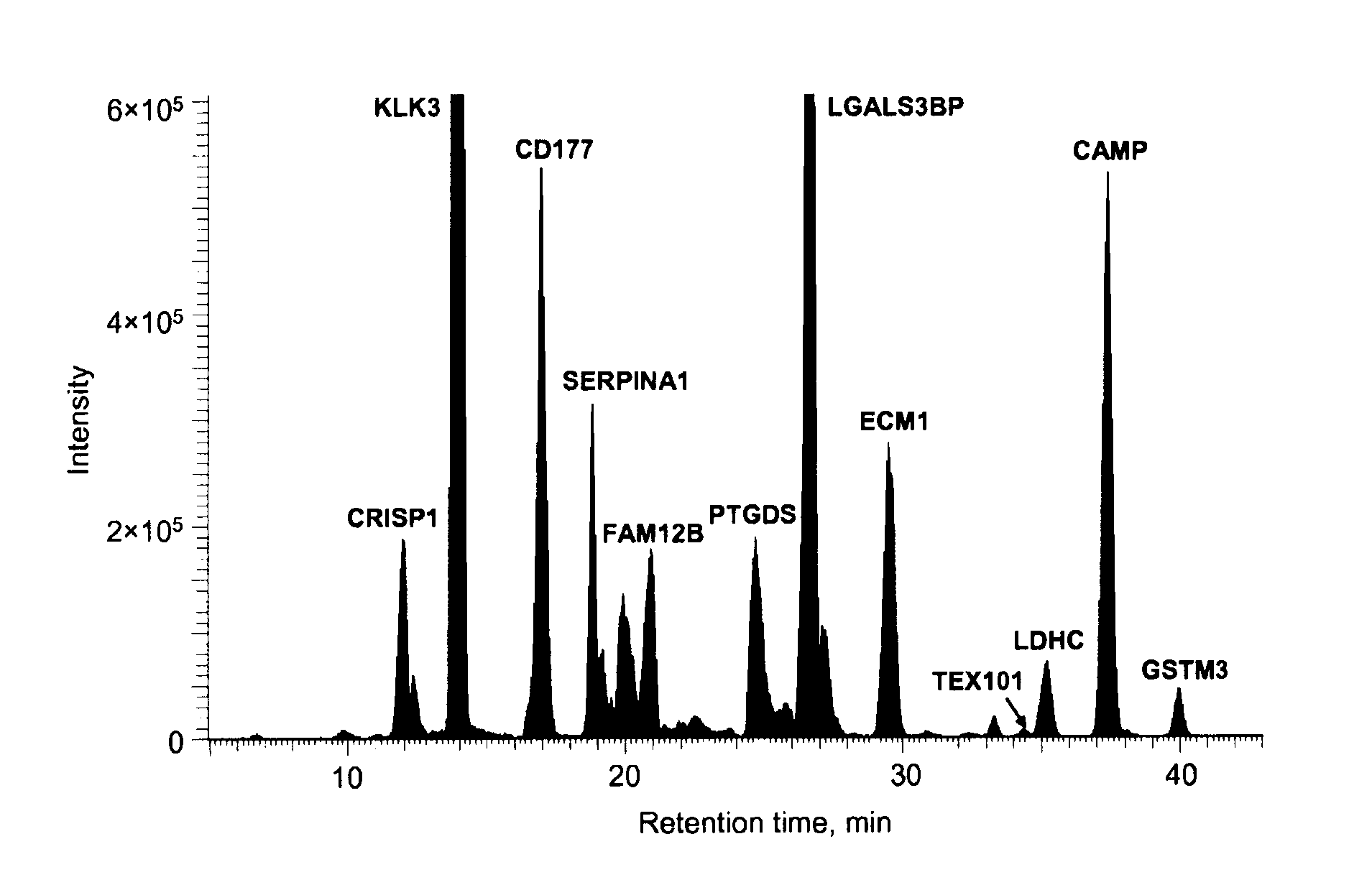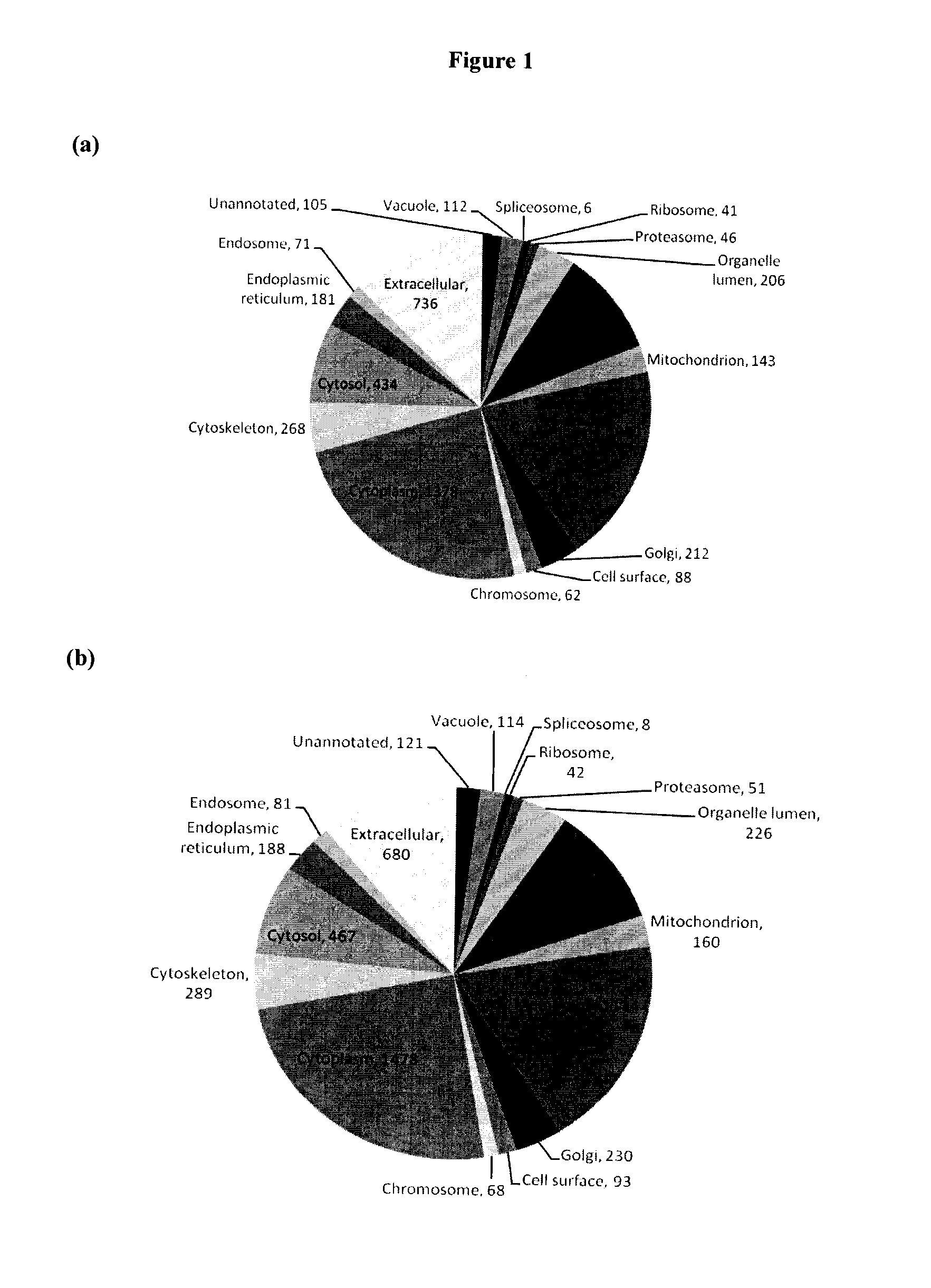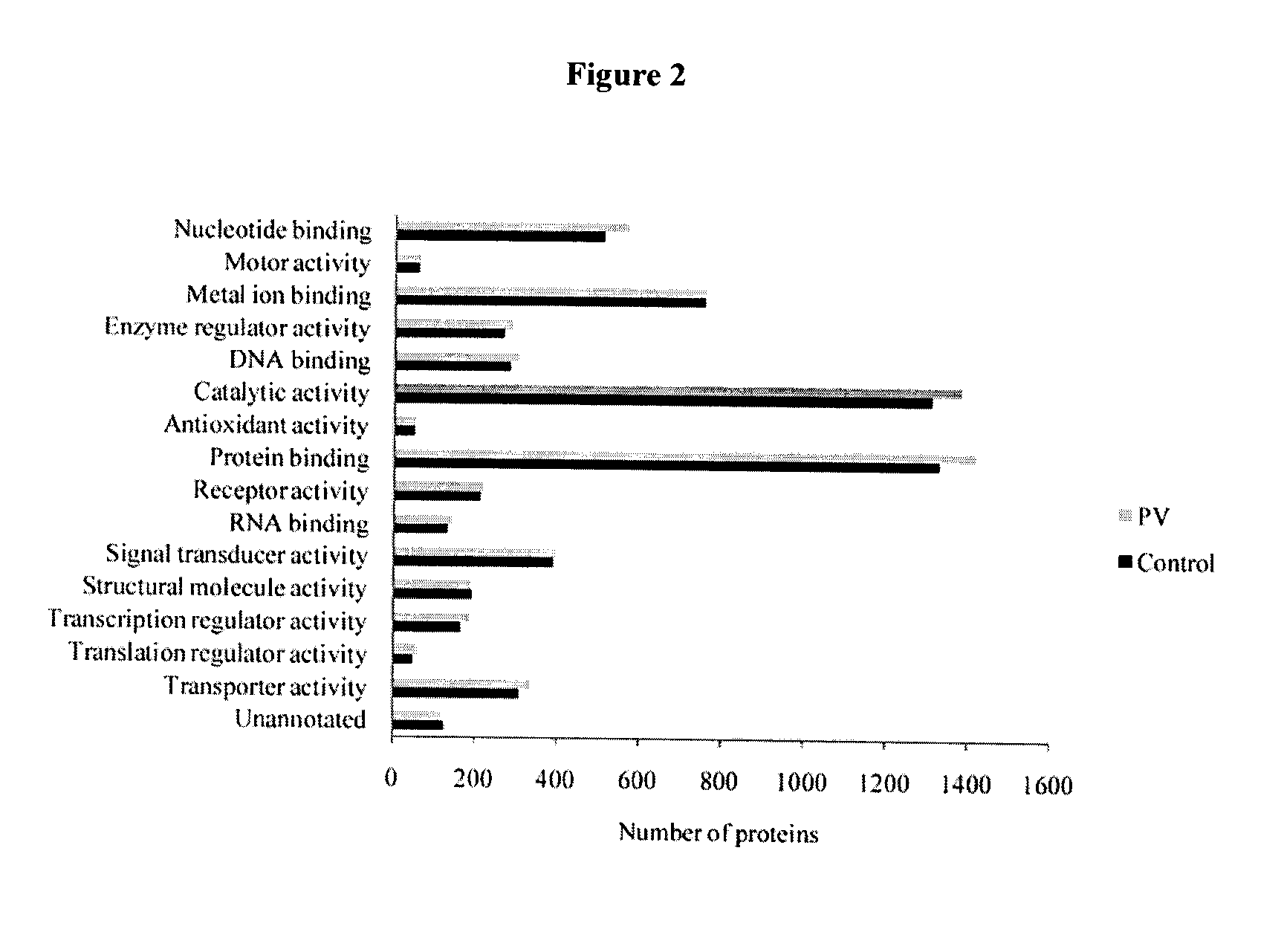Markers of the male urogenital tract
a male urogenital tract and marker technology, applied in the field of male urogenital tract markers, can solve the problems of no biomarkers to definitively diagnose oa or noa, poor specificity and sensitivity of molecules, and inability of ptgds to distinguish noa from normal and oa (pv) groups, and achieve positive prognosis
- Summary
- Abstract
- Description
- Claims
- Application Information
AI Technical Summary
Benefits of technology
Problems solved by technology
Method used
Image
Examples
example 1
[0522]The proteomes of pooled seminal plasma from fertile control and post-vasectomy (PV) men were profiled. PV seminal plasma samples are void of proteins originating from the testis and the epididymis due to ligation of the vas deferens, hence, comparative analysis of control and PV datasets allows for identification of proteins originating from these tissues. Utilizing offline MudPIT and high-resolution mass spectrometry over 2000 proteins were identified in Control and PV pools each and over 2300 proteins all together. With semi-quantitative analysis using spectral counting 32 proteins unique to Control, 49 at lower abundance in PV, 3 unique to PV and 25 at higher abundance in PV were catalogued. Proteins unique to Control or at lower abundance in PV have their origin in the testis and the epididymis. Many of these proteins have been confirmed to originate from the testis and epididymis and to be linked to the reproductive tract.
[0523]The following materials and methods were use...
example 2
[0550]The strategy of step-wise elimination of poorly performing candidates was used to identify specific markers. Only those proteins which would be reproducibly quantified by SRM in the unfractionated digest of seminal plasma were analyzed. With the final multiplexed SRM assay, the concentration of 20 proteins in 30 normal, NOA and PV seminal plasma samples was measured. For the first time, a panel of biomarkers for the differential diagnosis of azoospermia with absolute or near-absolute specificities and sensitivities is proposed.
[0551]The following materials and methods were used in the study.
[0552]The following materials and chemicals were used: sequencing grade modified trypsin (Promega; Madison, Wis., USA), iodoacetamide, dithiothreitol (DTT) (Sigma-Aldrich; St. Louis, Mo., USA), Rapigest surfactant (Waters, Milford, Mass., USA). Heavy isotope-labeled peptides were obtained from Thermo Fisher Scientific Inc.
[0553]Patients and specimens. Seminal plasma samples were obtained by...
example 3
[0598]By using a shotgun proteomic approach, the proteomes of seminal plasma from men with confirmed prostatitis to the proteomes of seminal plasma from fertile, healthy controls were compared. Seminal plasma samples from 5 individuals from each of the two diagnostic groups were pooled together to account for inter-individual variation in protein composition. Using this approach, a list of candidate prostatitis biomarkers was compiled and two of the biomarkers were validated using an ELISA assay.
[0599]The following materials and methods were used in the study.
[0600]Seminal plasma samples were collected, processed, and analyzed in accordance with the methods described above. A brief summary of the methods for the Prostatitis and Control samples is given below.
[0601]Sample Collection and Processing. Semen from men with prostatitis was collected after a minimum of 3 days of sexual abstinence. The 5 selected patients all had confirmed prostatitis, as diagnosed by the presence of lower u...
PUM
| Property | Measurement | Unit |
|---|---|---|
| retention time | aaaaa | aaaaa |
| retention time | aaaaa | aaaaa |
| temperature | aaaaa | aaaaa |
Abstract
Description
Claims
Application Information
 Login to View More
Login to View More - R&D
- Intellectual Property
- Life Sciences
- Materials
- Tech Scout
- Unparalleled Data Quality
- Higher Quality Content
- 60% Fewer Hallucinations
Browse by: Latest US Patents, China's latest patents, Technical Efficacy Thesaurus, Application Domain, Technology Topic, Popular Technical Reports.
© 2025 PatSnap. All rights reserved.Legal|Privacy policy|Modern Slavery Act Transparency Statement|Sitemap|About US| Contact US: help@patsnap.com



